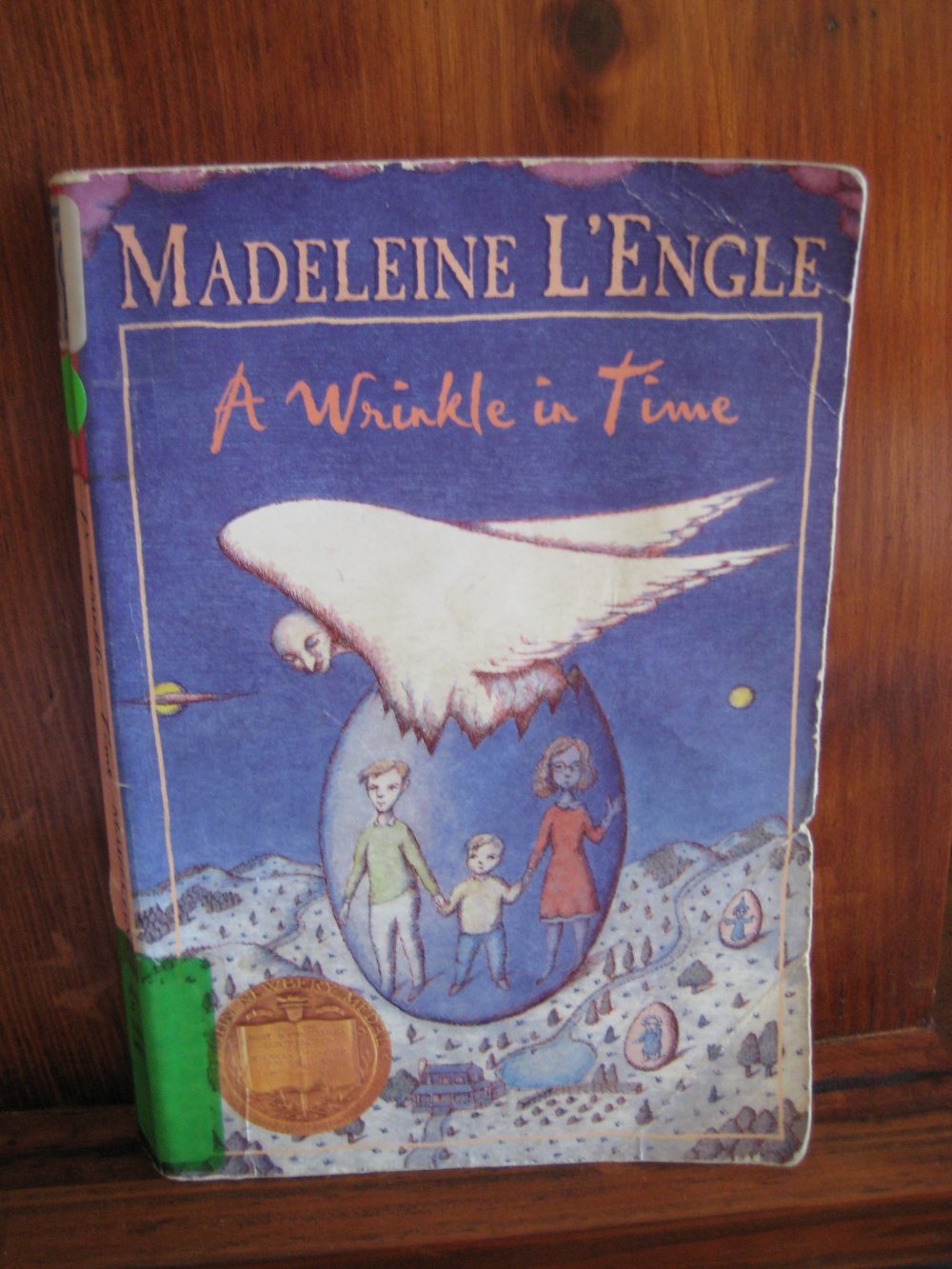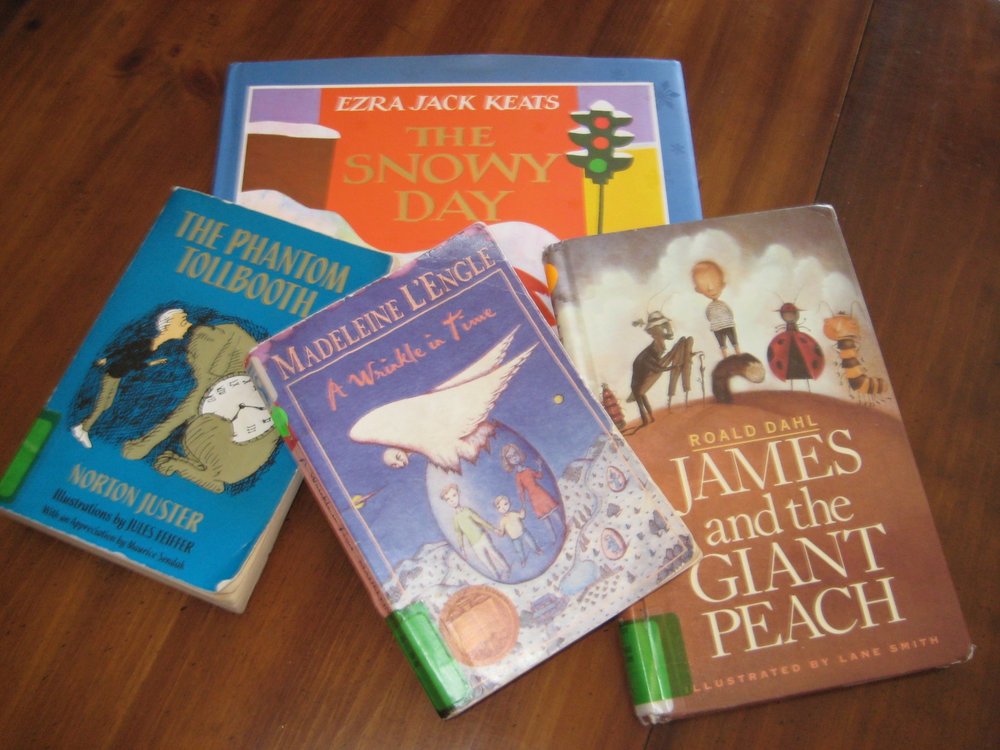
A Wrinkle in Time won the Newbery Award for books published in 1962 and has won the hearts of children and many adults ever since. [Just look how worn my library copy is!] Madeleine went on to write a Time Quintet of books using these characters – A Wind in the Door, A Swiftly Tilting Planet, Many Waters, and An Acceptable Time. I just discovered Many Waters a couple of years ago and was intrigued with her way of weaving the biblical Noah story into her plot. And the quintet only begins her long list of well loved children’s books. Yet there is another dimension to her writing.
I like Madeleine’s philosophy quoted on her website, “You have to write the book that wants to be written. And if the book will be too difficult for grown-ups, then you write it for children.” She wrote a number of “simpler” books for those adults in a “sit around the teapot and talk” style. My personal favorites are Two Part Invention: The Story of a Marriage, a delightful family memoir, and Walking on Water, a must-read for those writers and other artists who want to connect their spiritual and creative sides in pursuing their art.
Wrinkle gave Madeleine a firm foothold in the writing world, and she used it to climb to the pinnacle. She lived up to her own quote from Mrs. Whatsit comparing life to a sonnet, “You’re given the form, but you have to write the sonnet yourself. What you say is completely up to you.”
A very happy 50th anniversary to A Wrinkle in Time. May it long continue to bring its own pleasant twist to the minds of its readers.
* Speaking of clichés – Alice has already awakened to find that Wonderland is a dream so writers can skip this one, too. And if I never hear the now tired cliché that was fresh and new when Yogi Berra said it, “Déjà vu, all over again,” it will be okay with me.
